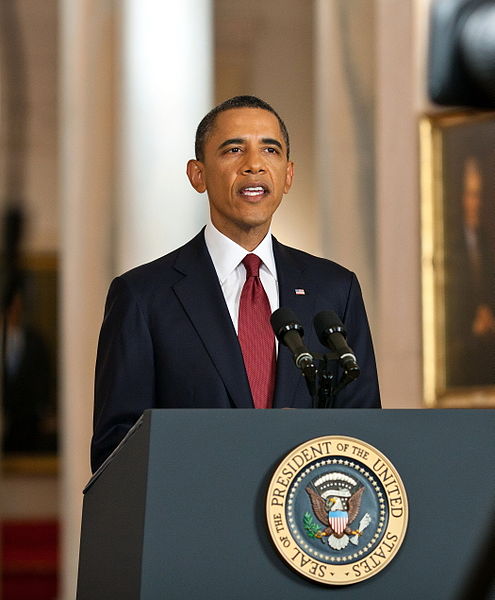A few years before he was an Illinois state senator, long before he became a U.S. Senator and years before the nation elected him our first African-American president, Barack Obama was a law professor and community organizer.
…and the author of a book about his Kenyan father.

Barack Obama was born to a Kenyan father and an American mother in 1961, but his parents divorced when he was two years old.
Obama has said his father was little more than a myth to him, at the time of the elder Obama’s death in 1982.
Just before he went off to law school, Barack Obama traveled to Kenya to learn more about his father, and to try and put some perspective on his mixed-race heritage.
The result was his book “Dreams From My Father,” first published in 1995.
Although the book was biographical in tone, our future president blended his story with the politics of race in America:
“I certainly think that you have to know where you’ve been if you want to know
where you’re going. For someone who comes out of a family and a background that’s both black and white, that’s an especially important process that one has to go through.
“We live in a land of strangers. Blacks and whites don’t know each other, they don’t know their stories very well. Within my own family, even in the best-meaning family, there’s a tremendous scope for misunderstanding, for suspicion, for fear. Until I understood what those fears were,what those hopes were, and what those dreams were, I think I was destined to — potentially, at least — repeat some of the mistakes that my parents and grandparents had made.”
I responded: “All of that, decades after Dr. King and the civil rights movement. This seems almost incredible to me, at times, to think that this is all the progress we’ve been able to make?”
“Well, you know, it is frustrating, I think. I talk a lot in the book about my attempts to renew the dream that both of my parents had. I worked as a community organizer in Chicago, [and] was very active in low-income neighborhoods working on issues of crime and education
and employment, and seeing that in some ways certain portions of the African-American community are doing as bad, if not worse, and recognizing that my fate remained tied up with their fates. That my individual salvation is not going to come about without a collective salvation for the country.
“Unfortunately, I think that recognition requires that we make sacrifces, and this country has not always been willing to make the sacrifces necessary to bring about a new day and a new age.”
When I interviewed him in 1995, Barack Obama had just turned 34 years old, and had never held elected office. But he was a skilled, persuasive and engaging interviewee — and a similarly gifted author.
“You know, I tell the story – just to take one of the clearest examples – of my grandmother, who loves me dearly and has made all kinds of sacrifices on my behalf, expressing at one point when I was a teenager her fear of black men on the streets. To discuss that honestly, and to discuss how that felt, to discuss how my grandmother felt, and then to be able to arrive at some sort of peace with that, some greater understanding and some forgiveness, I think was probably the most difficult part of writing it.”
“What was toughest was writing honestly and truthfully about the suspicions and hurts and failings of the people closest to me, and writing about those same failings and disappointments and blind spots in myself. I think whenever we talk about race there are all kinds of issues we’d like to skirt.
Now fast forward to 2008, when candidate Barack Obama won the Democratic nomination for President. I posted this interview on my website Eye on Books — and a few weeks later, was surprised to hear sound bites from it on the radio — on the Rush Limbaugh show. It turns out a conservative blogger had re-edited my interview to take certain phrases and nuances out of context, Rush heard it, and ran with it.
I suppose that could have been labeled “fake news.”